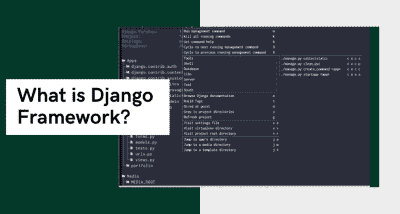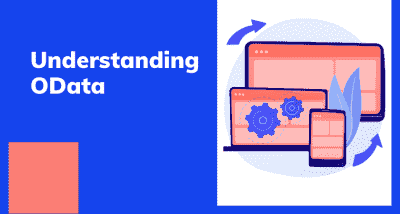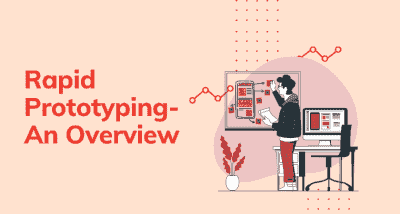Artificial Intelligence Engineer
- Swetha Y
- Jun 25, 2019
- 0 commentaires
- 5752 Vues

Who is an Artificial Intelligence Engineer?
An artificial intelligence engineer works with algorithms, neural networks, and other tools to advance the field of artificial intelligence in some way. These professionals may work on various types of artificial intelligence in different industries, for example.
-
Healthcare
-
Retail
An Artificial Intelligence engineer is someone who works on artificial intelligence problems or technologies.
Engineers may also choose between projects involving weak or strong artificial intelligence, where different setups focus on different capabilities. That’s a topic for another discussion. Now there are many ways one could reach there. So, let’s see how to become an Artificial Intelligence Engineer.
How to Become an Artificial Intelligence Engineer
1. Now, if we start from the Basics, one needs to earn a Bachelor’s Degree first. It can be from either of the following areas or Subjects:
- Computer Science
- Mathematics
- Information Technology
- Statistics
- Finance
- Economics
2. The next step is to fine-tune your Technical Skills. An important thing to note here is that in order to become an AI Engineer one not only needs to be good at programming but also good at Software Development techniques and practices.
They need to be knowledgeable both theoretically and practically about the following topics:
- Software Development Life Cycle
- Modularity, OOPS, Classes
- Design Patterns
- Statistics and Mathematics
- Machine Learning
- Deep Learning & Neural Networks
- Electronics, Robotics, and Instrumentation (Not a Mandate)
3. Apart from technical Skills there are also must have Business Skills one must possess while planning on How to Become a Successful Artificial Intelligence Engineer. Some of these skills include:
- Analytic Problem-Solving
- Effective Communication
- Creative Thinking
- Industry Knowledge
4. Now, these skills can either be achieved through practice or by opting for a Master’s Degree. As AI is a newly emerging topic in today’s world, a lot of recent discoveries and research is going on which can be useful for your thesis. Going for a Master’s Degree in Data Science, Machine Learning or Computer Science is advised.
Another Option is to go for Industry Certifications for Machine Learning, Deep Learning or Data Science. This will add a lot of value to your resume and will help you get in-depth knowledge of topics both theoretically and practically. Which will, in turn, help you get an edge over other competitors.
Skills Required
In the roadmap of ‘How to Become an Artificial Intelligence Engineer’, we saw some Technical and Business Skills required. Let’s have a closer look at those skills, starting with Technical Skills:
Technical Skills
- Programming Languages (R/Java/Python/C++)
One needs to be good at programming languages and not only that it’s important to have a solid understanding of classes and data structures.
Sometimes Python won’t be enough. Often you’ll encounter projects that need to leverage hardware for speed improvements. Make sure you’re familiar with basic algorithms, as well as classes, memory management, and linking.
AI & Deep Learning with TensorFlow
- Instructor-led Sessions
- Real-life Case Studies
- Assignments
- Lifetime Access
Linear Algebra/Calculus/Statistics
You’ll need to be intimately familiar with matrices, vectors, and matrix multiplication. If you have an understanding of derivatives and integrals, you should be in the clear. Statistics is going to come up a lot.
At least make sure you’re familiar with Gaussian distributions, means, and standard deviations. You need to have a firm understanding of Probability to understand models like
- Naive Bayes
- Gaussian Mixture Models and
- Hidden Markov Models
- Applied Math and Algorithms
Having a firm understanding of algorithm theory and knowing how the algorithm works are very important. You will need to understand subjects such as Gradient Descent, Convex Optimization, Lagrange, Quadratic Programming, Partial Differential equation, and Summations
All this math might seem intimidating at first if you’ve been away from it for a while. Yes, Machine Learning and Artificial Intelligence are much more math-intensive than something like front-end development.
- Language, Audio and Video Processing
Natural Language Processing combines two of the major areas of work i.e. Linguistics and Computer Science and chances are at some point you’re going to work with either text or audio or video.
So it’s necessary to have good control over libraries like Gensim, NLTK, and techniques like word2vec, Sentimental Analysis, and Summarization.
- Neural Network Architectures
We need Machine Learning for tasks that are too complex for humans to code directly, i.e. tasks that are so complex that it is impractical. Neural networks have been by far the most accurate way of approaching many problems, like Translation, Speech Recognition, and Image Classification, which plays a very important role in the AI department.
Apart from these Technical Skills, there are certain Non-Technical skills or Business Skills that are also required to become one Successful AI Engineer. So, let’s continue this ‘How to Become an Artificial Intelligence Engineer’ article to understand what exactly I mean by Non-Technical Skills.
Business/Non-Technical Skills
- Communication
You’ll need to explain ML and AI concepts to people with little to no expertise in the field. You might also need to learn from electrical and robotics people. Communication is going to make all of this much easier.
- Creative and Critical Thinking
AI Engineers must look at the numbers, trends, and data and come to new conclusions based on the findings. Questioning established business practices and brainstorming new approaches to AI.
Whether you look at the rise of AI will excitement or trepidation, the robots are here to stay in one form or another. Combining this new technology with the strongest traits of the uniquely human mind offers a world of potential that has yet to be fully explored.
- Rapid Prototyping
Iterating on ideas as quickly as possible is mandatory for finding one that works. In machine learning, this applies to everything from picking the right model, to working on projects such as A/B testing. You need to do a group of techniques used to quickly fabricate a scale model of a physical part or assembly using three-dimensional computer-aided design, especially while working with 3D models.
- Industry Knowledge
The most successful Artificial Intelligence projects out there are going to be those that address real pain points. Whichever industry you’re working for. You should know how that industry works and what will be beneficial for the business.
If an Artificial Intelligence Engineer does not have business acumen and the know-how of the elements that make up a successful business model, all those technical skills cannot be channelled productively.
Now, with these Skills, one can surely land a Job as an Artificial Intelligence Engineer, but once you are working you need to also know what exactly you’ll be doing in the day to day life. So here are the key Roles and Responsibilities of an AI Engineer.
Roles and Responsibilities
Depending upon their Level of Expertise AI Engineers in general:
- Study and transform Data Science Prototypes
- Research and Implement Appropriate ML algorithms and AI tools
- Develop Machine Learning Applications according to Requirements
- Working with Electric Engineers and Robotics Team
- Select appropriate Datasets and Data Representation Methods
- Run Machine Learning / AI Tests and Experiments
- Keep Abreast of Developments in the Field
- Train and retrain systems When Necessary
Salary Trends and Companies Hiring
According to Indeed the Average Salary of an Artificial Intelligence Engineer is around $110,000 per Annum, with a minimum of $105,244 and a maximum of $144,611. Let’s move to our final section of “How to Become an Artificial Intelligence Engineer” and see which companies are Hiring these Professionals.
Companies that hire top AI talent range from start-ups like Argo AI to tech giants like IBM. According to Glassdoor, these are the leading employers who hired top AI talent over the past year.
So, with this, we come to an end of this article. I hope you got an idea about Artificial Intelligence Engineer profile and what is the correct path one needs and the skill sets required that make this job a unique one of its kind. Now that you know how to become an Artificial Intelligence Engineer.














